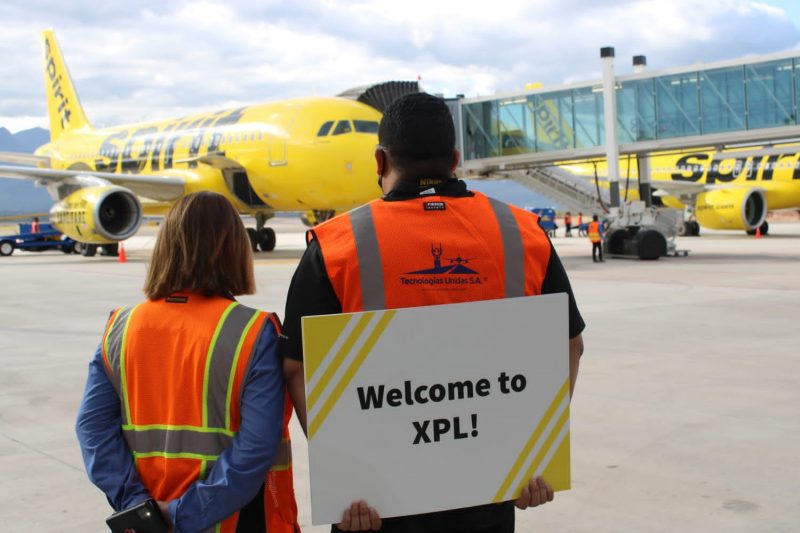Honduras’ Palmerola International Airport finally takes off
COMAYAGUA, Honduras/MUNICH, Germany—After five years of planning, developing and commissioning, the new Honduran capital airport Palmerola International Airport recently welcomed its first scheduled flights and passengers.
The initial capacity of Palmerola International Airport amounts to 1.5 million annual passengers. With a runway length of 2,440 meters, state-of-the-art airport technologies, four passenger security check points and seven passenger boarding bridges the airport meets international standards and is fit for the future.
The new capital city airport is also to become a job engine for the region – 2,000 direct and 5,000 indirect new jobs are expected in the coming few years.
On December 11, the airport greeted Spirit Airlines as the first scheduled carrier with daily flights from Houston and four weekly flights from Miami. By now, a total of five airlines are operating international flights to Palmerola International Airport.
United Airlines offers a daily service to Houston, American Airlines connects Palmerola 12 times per week with Miami and three times weekly with Dallas. Copa Airlines operates daily flights to Panama City and Avianca takes off daily to El Salvador and four times weekly to Guatemala City.
Starting this January 2022, Spirit Airlines plans to add further flights to Ford Lauderdale and AeroMexico intends to introduce flights to Mexico City.
Munich Airport International (MAI), a subsidiary of Munich Airport, has been providing consulting services in Honduras since 2015 for the planning and commissioning of the new Palmerola International Airport.
MAI’s contracting partners in this project are the Honduran airport operator Palmerola International Airport S.A. (PIA) together with the Honduran construction company EMCO.
“The new airport represents a milestone for infrastructure development and thus improved connectivity and economic growth for the Comayagua region and all of Honduras,” comments Dr. Ralph Gaffal, Managing Director MAI.
All international traffic was shifted from Toncontín Airport to Palmerola International Airport. Toncontín Airport will be further used for domestic flights and general aviation only. Martin Kamlah, Senior Project Manager MAI states: “The old Toncontín Airport with its short runway and challenging approach in the middle of the city counts among the most dangerous airports in the world. We are pleased to be able to support the region in the construction and operation of the new top modern, safe and future-oriented airport.”
The Munich Airport subsidiary MAI provides expertise in areas of operational efficiency and safety, airport strategy, master planning, passenger experience, process efficiency, operational readiness and airport transfer (ORAT), airline marketing, operational and commercial concepts. Munich’s experts have been on the ground in Honduras for more than five years. They work hand-in-hand with PIA’s management and airport professionals as well as with all Honduran aviation stakeholders, following the Civil Authority of Honduras’ directives and guidelines for safe and efficient operations










